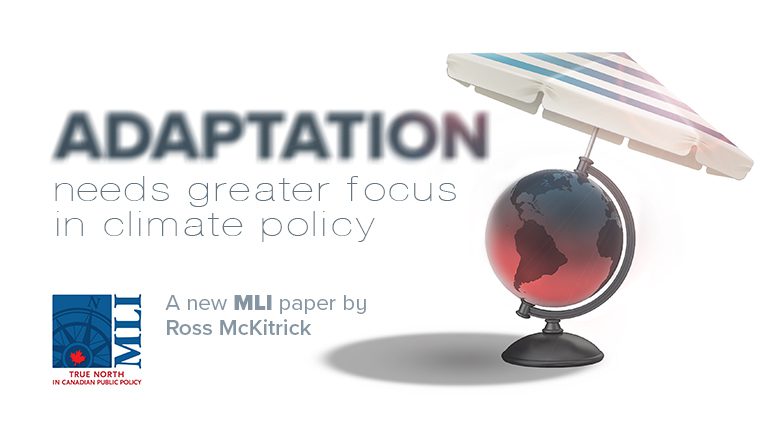OTTAWA, ON (July 6, 2023): Contemporary discussion of climate policy overwhelmingly focuses on mitigation, or emissions reduction. Little to no attention is paid to the option of adaptation, despite an excellent record of success. Policy makers should consider whether measures which allow people to adapt to shifting climate and weather patterns may in fact be a less costly and more effective means of promoting social welfare.
In this new MLI paper, Adaptation needs greater focus in climate policy, Ross McKitrick argues for the adoption of an adaptation-based climate policy. Mckitrick explains that mitigation policies have failed and will continue to fail due to unrealistic goals:
“Thirty years of policy experience has shown that preventing global emissions from rising… is not going to be feasible. Meanwhile, a solid body of research has shown that adaptation to past weather and climate variations has been successful,” writes McKitrick.
McKitrick explains two reasons behind the failure of the climate mitigation agenda: the size of proposed emission reduction policies relative to the carbon cycle, and the leakage problem.
First, eliminating net human emissions to the atmosphere would require cutting global CO2 emissions by about 50 percent. However, climate policy proposals have generally only sought to reduce global emissions by a few percent. For example, commitments made by countries participating in the Kyoto Protocol would have reduced global emissions by about 2.5 percent.
“To an even greater extent therefore, all domestic Canadian policies are likewise utterly irrelevant to the progress of climate change over the coming century,” writes McKitrick.
Second, when an international emissions control treaty binds some regions but not others, it incentivizes industries to simply relocate production to the non-participating regions to mitigate higher costs. This is referred to as carbon leakage. Since climate does not respect international borders, a climate policy that simply rearranges the location of emissions but does not reduce them is futile.
In his evaluation of the effectiveness of adaptation measures, McKitrick looks at how they have been shown to reduce vulnerability to climate and weather risks. As examples, he cites how reliable access to electricity has reduced mortality risks associated with temperature variations (through access to heating and air conditioning) and how affordable energy and nitrogen fertilizers have contributed to combating the effects of climate change on agriculture.
“Thirty years of policy experience has shown that preventing global emissions from rising, or the climate from changing, is not going to be feasible,” concludes McKitrick.
“Policy-makers must confront this imperative and make a specific priority of avoiding mitigation measures that harm peoples’ ability to undertake defensive adaptation measures to address future weather and climatic variations.”
To learn more, read the full paper here:
***
Ross McKitrick holds a Ph.D. in economics from the University of British Columbia (1996) and is a professor of economics at the University of Guelph in Guelph, Ontario. He is the author of Economic Analysis of Environmental Policy published by the University of Toronto Press in 2010. He has been actively studying climate change, climate policy, and environmental economics since the mid-1990s.
For further information, media are invited to contact:
Skander Belouizdad
Communications Officer
613-482-8327 x111
skander.belouizdad@macdonaldlaurier.ca







